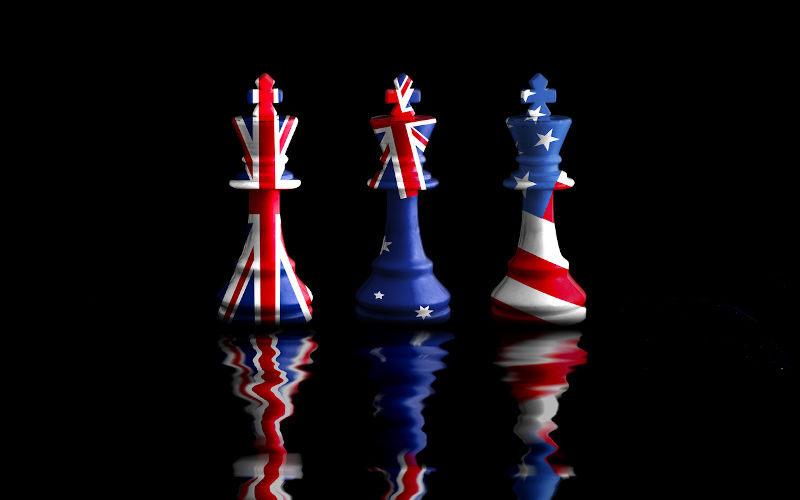Will Australia always follow the innocent nation into war?
March 25, 2023
A war in East Asia provoked by American intransigence would be no less disastrous for Australia than one caused by Chinas ambitions. While Chinas intentions and plans are inaccessible and should generate prudent caution, the well-researched drivers of Americas strategic policy should also produce grave reservations within the Albanese government.
Suggestions of the deeper ideational sources of American policy are evident in Freedom Houses report Freedom In The World 2023. Democracies, it says, should reduce their reliance on authoritarian regimes, and make the protection of freedom and democratic governance a fundamental component of all international policyincluding foreign, security, and economic policyand of every diplomatic engagement.
Democracies should be prepared for political upheaval, the report stresses, and to draw up serious contingency plans for responding to political change, both negative and positive, including the emergence of widespread popular movements for a more open society. Of note is the reports reinforcement of Americas denial of heterogeneity in the world, of the right to difference. The report fails to recognise the influence of history, culture, geography, geology, economic conditions, or ethnic and religious divisions. The only criteria for placing countries on one side of the ledger or the other is the extent to which American values are accepted and are recognised as universal. Notably, Freedom House is 86 percent funded by the US government.
The sacralised values America professes are more than just norms. The religiosity that inhabits Americas approach to the rest of the world is evident when President Biden extols the sacred flame [that] still burns now in our time and holds that the soul of America is defined by the sacred proposition that all are created equal in the image of God. All Americans, that is. Alexis de Tocqueville perceptively observed that Americans conceive a high opinion of their superiority and are not very remote from believing themselves to be a distinct species of mankind.
That Biden believes America is an idea - the most powerful idea in the history of the world and that it is still the beacon to the world is not an outlier. His calls for all Americans to reaffirm our commitment to championing those around the world who are working to secure liberty and justice for all echo presidents and public figures since the founding of the Republic.
The religious and civilisational missions are intertwined. As Lee Marsden has observed, the ideational underpinnings of American primacy are shaped by foundational myths with a religious dimension. Marsden writes that the idea that America is special rests on the belief the nation has been chosen by God and has ideals that are the envy of the world. America considers itself to be an innocent nation, more sinned against than sinning. Any resentment at American foreign policy must be envy of the values of freedom and liberty benevolently proffered throughout the world by an innocent nation; and never a reaction to American interventions.
Marsden is not alone in his analysis. Imke Khlers studies also find that The myth of the innocent nation is one of the most powerful among a range of myths that have defined American life and constituted the American self-image throughout the countrys history. Similarly, Marita Sturkens research has demonstrated that 9/11 was repeatedly portrayed as an attack from the outside on an undeserving, innocent nation. Eugenio Lilli shows ordinary US citizens appear to share the belief in the innocent nature of US foreign policy.
Marsden says Americas moral superiority leads to it cultivating a succession of immoral enemies that must be violently defeated in perpetuity in order to maintain the myth. Additionally, Americans are convinced they are justified in bringing to non-democracies universal values because US national interests are coterminous with the unacknowledged interests of the people of these countries if not their leaders. Americas foreign policy remains fuelled by the myth that sacralise(s) symbols of the nation and reifies the United States. They justify a relentless pursuit of the transformation of the other.
In Heathen, Kathryn Gin Lum details how the biblical interpretation of Anglo-American Protestants divided the world into the saved and the demonic. They beheld beyond America an undifferentiated mass of unbelievers who had never been exposed to salvation and were in thrall to Satan. Now, for the American foreign policy elite, the world beyond still contains a largely undifferentiated collection of non-democracies that as yet have not been converted. Their resistance to democratic salvation is prima facie evidence of evil and an affront to the self-evident moral superiority of America.
Two great powers with enormously destructive capabilities are contending in the Asia Pacific. Either could take the misstep in war. China has its own ideational framework which is endlessly and microscopically investigated by experts and often by the less qualified commentariat. However, the American sense of righteousness and mission often generates a pious intransigence and inflexibility that is overlooked in geopolitical discourse.
Unquestioning commitment to an ally not fully understood doesnt make for good policy. Oddly, its arguable Australian policymakers understand less of America than of China. It would be unsound to single out one factor on which to base forecasts of American actions and policy. Many factors, contingent, institutional, and political, affect Americas day-to-day decision making. But the impact of the notions of universality and innocence can no more be ignored than can the judgements made concerning Chinas drivers and motivations.
There is a desperation in the need to establish the rightness of Americas world leadership. There is a flavour of irrationality in its hostility to non-democratic regimes. Theres blindness in Americas insistence that its way is the only way for the whole world. This is perhaps the most dangerous fact in the world. Yet, Australian leaders themselves implicitly buy into the innocent nation myth and justify their subordination to Americas policies as defending the sacralised rules-based order of the Americans.

